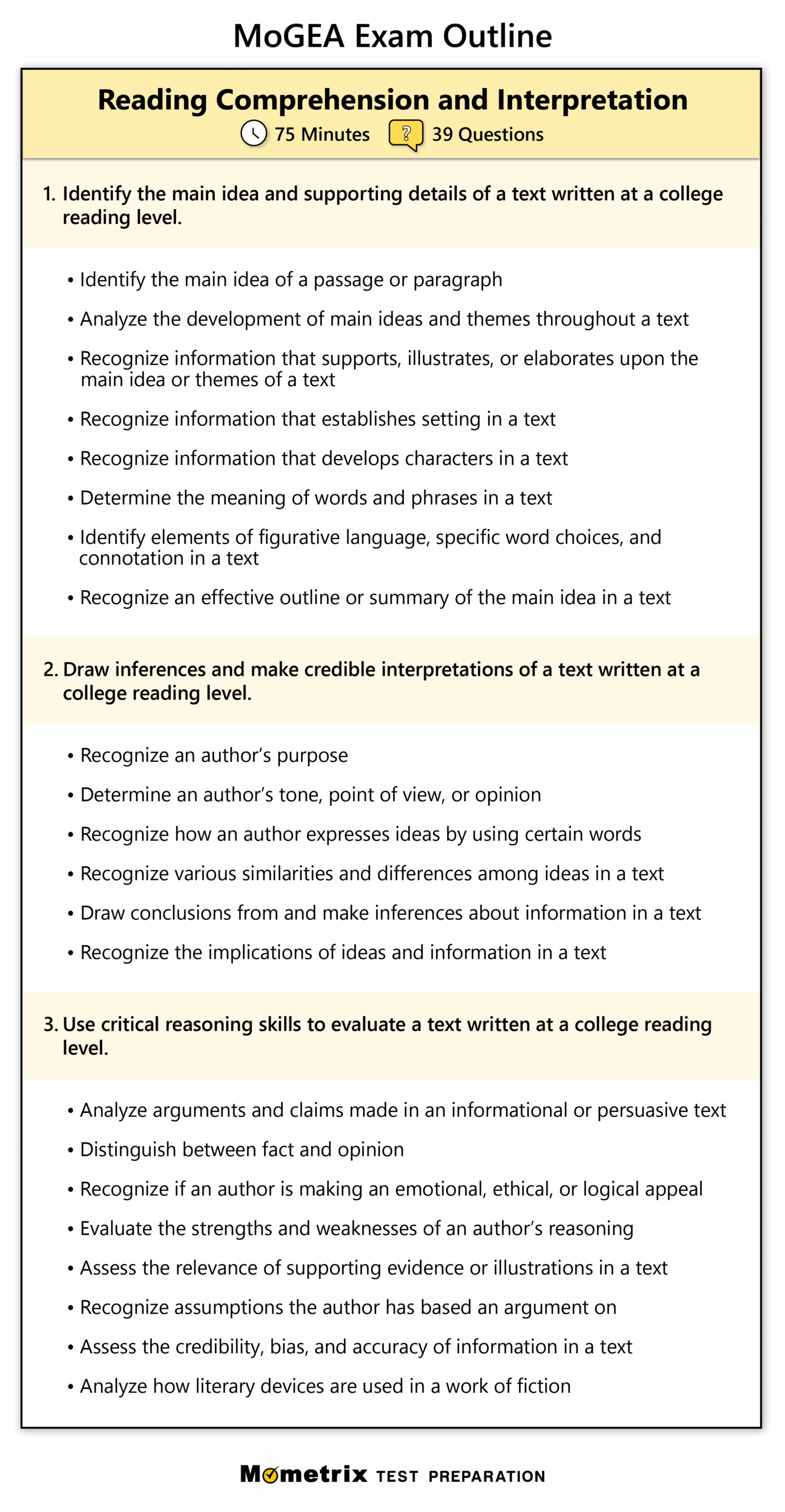Reading comprehension exams are a common assessment tool used in schools and universities to evaluate a student’s ability to understand and interpret written text. These exams typically consist of passages followed by a series of questions that test the reader’s understanding of the material.
Students are often required to demonstrate their ability to analyze the text, make inferences, and draw conclusions based on the information provided. Developing strong reading comprehension skills is essential for academic success and can also be beneficial in various aspects of life.
When taking a reading comprehension exam, it is important for students to carefully read the passage and pay attention to details. They should also take note of key information, such as main ideas, supporting details, and the author’s purpose. Answering the questions accurately requires critical thinking and the ability to synthesize information effectively.
One strategy that can help improve reading comprehension skills is to practice regularly by reading a variety of texts and answering questions based on the material. Additionally, students can work on vocabulary development and utilize reading comprehension exercises to enhance their understanding of written content.
Overall, reading comprehension exams serve as a valuable tool for assessing an individual’s ability to comprehend and analyze written text. By honing their reading skills and practicing regularly, students can improve their performance on these exams and develop a deeper understanding of the material they encounter.
In conclusion, reading comprehension exams play a crucial role in evaluating a student’s ability to understand and interpret written text. By approaching these exams with focus and dedication, individuals can enhance their reading comprehension skills and achieve success in their academic pursuits.
